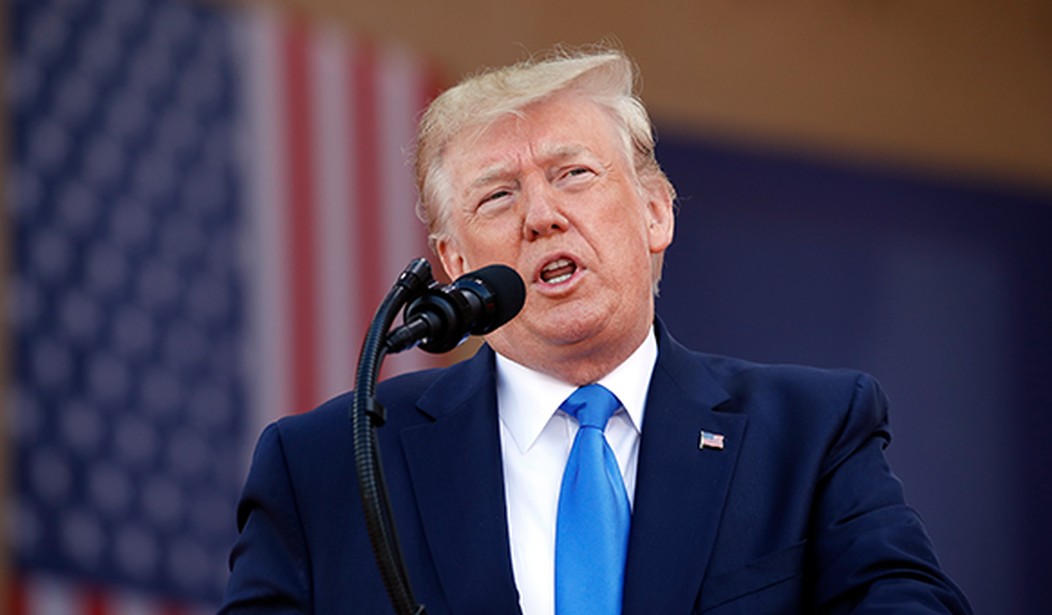Depending on whom you ask, President Trump has either ruined America or rescued it. If anything can be agreed upon, it may be that he has indeed shaken up the way things are done in Washington. Nowhere is this more evident than with immigration, arguably the most consequential issue facing our nation today. Even when his efforts do not achieve their desired outcome, the president is exposing the dysfunctional rot in our legal and political institutions.
The recent White House announcement of tariffs on Mexico is a prime example. Frustrated by an ever-increasing flow of foreign migrants through our southern border, Trump has eschewed throwing carrots at Mexico and instead gone full stick: tariffs on all goods coming from Mexico that will gradually increase until the Mexican government cracks down on asylum seekers coming from the Northern Triangle of Central America.
The establishment in Washington and the political media are clutching their pearls in horror. How will we endure the slightly higher cost of vegetables? Why are we mixing trade policy with immigration? These are surface-level inquiries that ignore the most relevant question, namely, how did we arrive at the point where the president sees slapping tariffs on Mexico as the best option to address our immigration problem?
The answer is quite simple. The patchwork of counter-productive policies, duplicitous members of Congress and politicized courts have taken away almost every other viable option. It’s no secret that waves of foreign nationals are exploiting our hopelessly outdated asylum laws.
Making often dubious claims of “credible fear” allows these foreigners to remain in the U.S. until the overwhelmed immigration courts can examine their cases. These arrivals are further incentivized to bring young children along with them, knowing that the Flores settlement mandates they can only be held for 20 days before being released into the interior of the U.S. to await a court date for which they will most often not attend.
Recommended
The judicial system has also been manipulated in this grand shell game. Every time Trump has attempted to use his constitutionally-mandated executive authority on immigration, activist lawyers are quick to seek an injunction. They forum-shop for the most left-leaning courts they can find, often landing in the notorious Ninth Circuit.
From there, what comes next is a predictable roadblock to any move that would stem the flow of those entering the country illegally. Judges who often have no experience in national security matters and were not elected by the American people have an effective veto over the duly elected chief executive’s power to secure the nation’s borders. This is a gross misuse of our system of checks and balances that is screaming out for reform.
But who will reform it? Certainly not our elected leaders in Congress, many of whom are invested in keeping the moribund status quo immigration system in place. The blame here is bipartisan, as the culprits are a motley crew of anti-borders Democrats and big-business Republicans. They loudly profess their commitment to national security, yet find an excuse to oppose virtually any measure that would actually deliver it. The border wall, asylum reform, e-Verify, ending chain migration—all proposals meet strong opposition under the guise of compassion to those entering our country illegally or intending to game our system through fraud.
Self-serving talking points about national security aside, these politicians seem to care little about mass migration’s harmful effects on the American people. Of far greater importance to them is the establishment of low-skilled, low-income aliens as a voting bloc, and a steady flow of cheap labor for business interests. Exactly how is Trump supposed to reach common ground with members of Congress who pursue an agenda that is diametrically opposed to the interests of the country?
Divided government brings gridlock, and since the Democrats won control of the House last year, gridlock is all we have seen. Are tariffs on Mexico the preferred course on immigration policy? Certainly not. They are the result of an immigration system riddled with ineffectiveness and cynical political agendas. Given the obstacles thrown at President Trump by the other branches of government, tariffs may be one of the few effective options remaining.
Brian Lonergan is director of communications at the Immigration Reform Law Institute, a public interest law firm working to defend the rights and interests of the American people from the negative effects of illegal migration.

























Join the conversation as a VIP Member